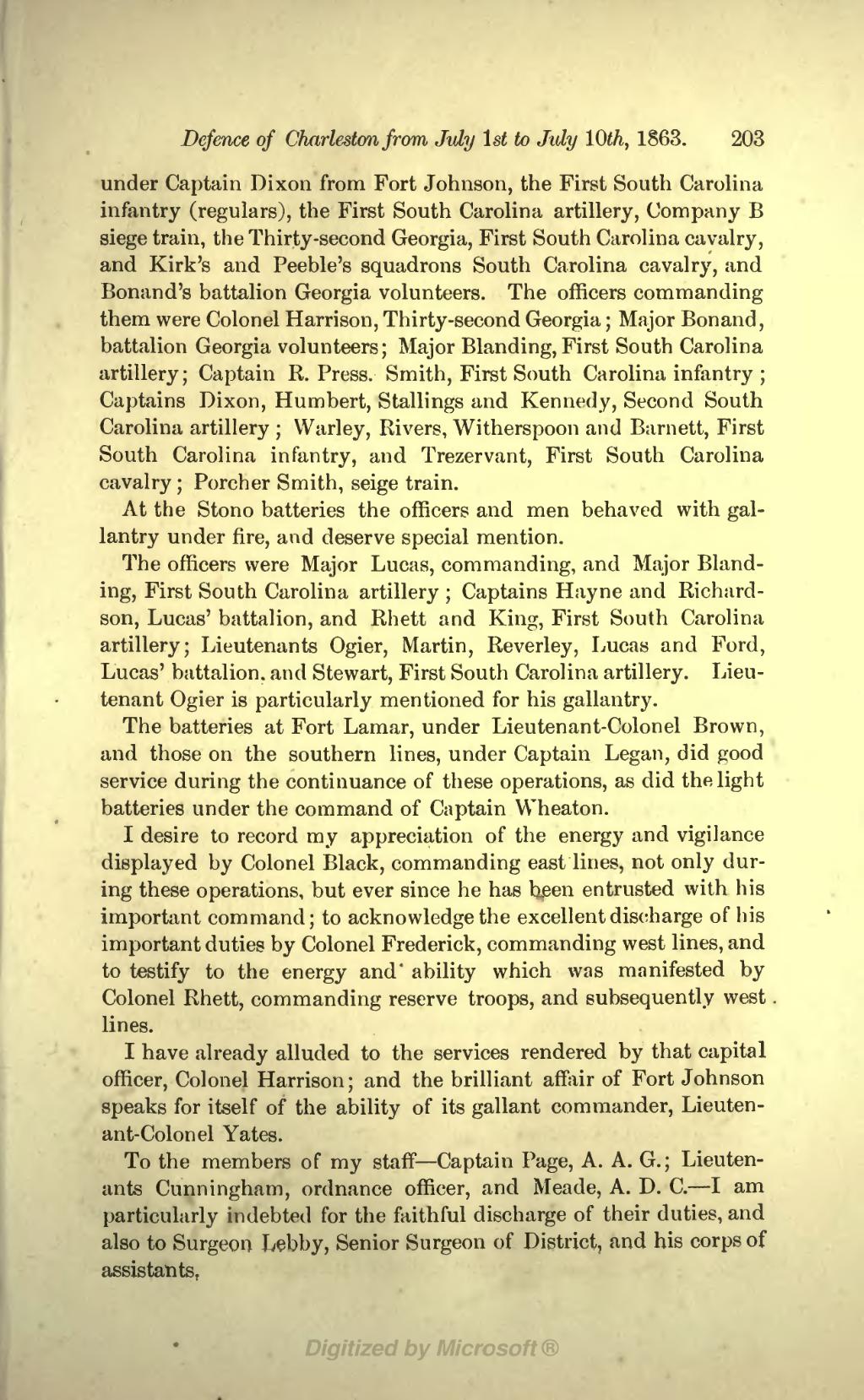under Captain Dixon from Fort Johnson, the First South Carolina infantry (regulars), the First South Carolina artillery, Company B siege train, the Thirty-second Georgia, First South Carolina cavalry, and Kirk's and Peeble's squadrons South Carolina cavalry, and Bonand's battalion Georgia volunteers. The officers commanding them were Colonel Harrison, Thirty-second Georgia; Major Bonand, battalion Georgia volunteers; Major Blanding, First South Carolina artillery; Captain R. Press. Smith, First South Carolina infantry; Captains Dixon, Humbert, Stallings and Kennedy, Second South Carolina artillery; Warley, Rivers, Witherspoon and Barnett, First South Carolina infantry, and Trezervant, First South Carolina cavalry; Porcher Smith, seige train.
At the Stono batteries the officers and men behaved with gallantry under fire, and deserve special mention.
The officers were Major Lucas, commanding, and Major Blanding, First South Carolina artillery; Captains Hayne and Richardson, Lucas' battalion, and Rhett and King, First South Carolina artillery; Lieutenants Ogier, Martin, Reverley, Lucas and Ford, Lucas' battalion, and Stewart, First South Carolina artillery. Lieutenant Ogier is particularly mentioned for his gallantry.
The batteries at Fort Lamar, under Lieutenant-Colonel Brown, and those on the southern lines, under Captain Legan, did good service during the continuance of these operations, as did the light batteries under the command of Captain Wheaton.
I desire to record my appreciation of the energy and vigilance displayed by Colonel Black, commanding east lines, not only during these operations, but ever since he has been entrusted with his important command; to acknowledge the excellent discharge of his important duties by Colonel Frederick, commanding west lines, and to testify to the energy and ability which was manifested by Colonel Rhett, commanding reserve troops, and subsequently west lines.
I have already alluded to the services rendered by that capital officer, Colonel Harrison; and the brilliant affair of Fort Johnson speaks for itself of the ability of its gallant commander, Lieutenant-Colonel Yates.
To the members of my staff—Captain Page, A. A. G.; Lieutenants Cunningham, ordnance officer, and Meade, A. D. C.—I am particularly indebted for the faithful discharge of their duties, and also to Surgeon Lebby, Senior Surgeon of District, and his corps of assistants.
